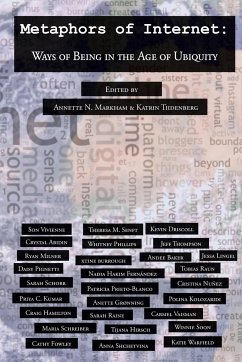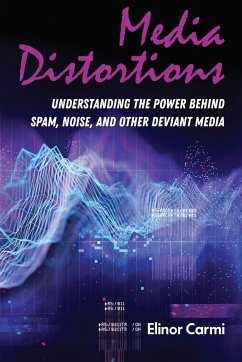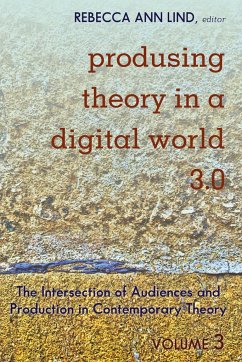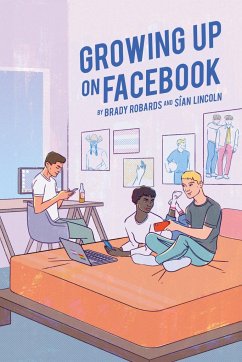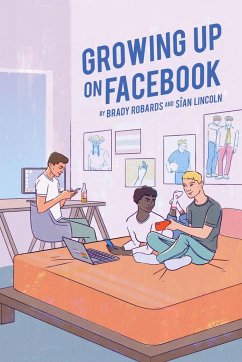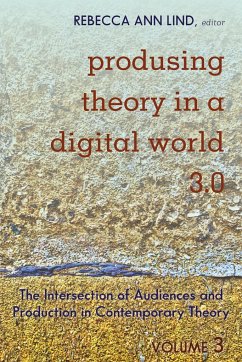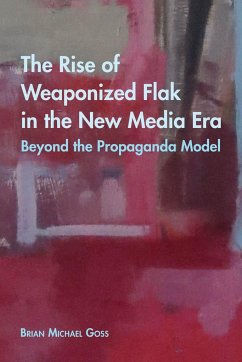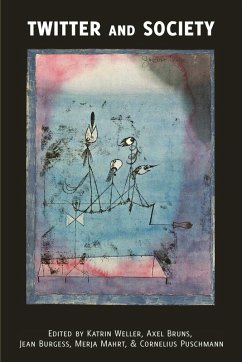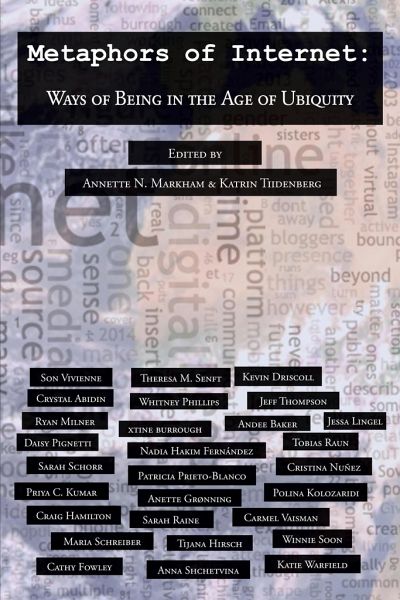
Metaphors of Internet
Ways of Being in the Age of Ubiquity
Herausgegeben: Jones, Steve; Markham, Annette N.; Tiidenberg, Katrin

PAYBACK Punkte
0 °P sammeln!
What happens when the internet is absorbed into everyday life? How do we make sense of something that is invisible but still so central? A group of digital culture experts address these questions in Metaphors of Internet: Ways of Being in the Age of Ubiquity.Twenty years ago, the internet was imagined as standing apart from humans. Metaphorically it was a frontier to explore, a virtual world to experiment in, an ultra-high-speed information superhighway. Many popular metaphors have fallen out of use, while new ones arise all the time. Today we speak of data lakes, clouds and AI. The essays and...
What happens when the internet is absorbed into everyday life? How do we make sense of something that is invisible but still so central? A group of digital culture experts address these questions in Metaphors of Internet: Ways of Being in the Age of Ubiquity.
Twenty years ago, the internet was imagined as standing apart from humans. Metaphorically it was a frontier to explore, a virtual world to experiment in, an ultra-high-speed information superhighway. Many popular metaphors have fallen out of use, while new ones arise all the time. Today we speak of data lakes, clouds and AI. The essays and artwork in this book evoke the mundane, the visceral, and the transformative potential of the internet by exploring the currently dominant metaphors. Together they tell a story of kaleidoscopic diversity of how we experience the internet, offering a richly textured glimpse of how the internet has both disappeared and at the same time, has fundamentally transformed everyday social customs, work, and life, death, politics, and embodiment.
Twenty years ago, the internet was imagined as standing apart from humans. Metaphorically it was a frontier to explore, a virtual world to experiment in, an ultra-high-speed information superhighway. Many popular metaphors have fallen out of use, while new ones arise all the time. Today we speak of data lakes, clouds and AI. The essays and artwork in this book evoke the mundane, the visceral, and the transformative potential of the internet by exploring the currently dominant metaphors. Together they tell a story of kaleidoscopic diversity of how we experience the internet, offering a richly textured glimpse of how the internet has both disappeared and at the same time, has fundamentally transformed everyday social customs, work, and life, death, politics, and embodiment.





